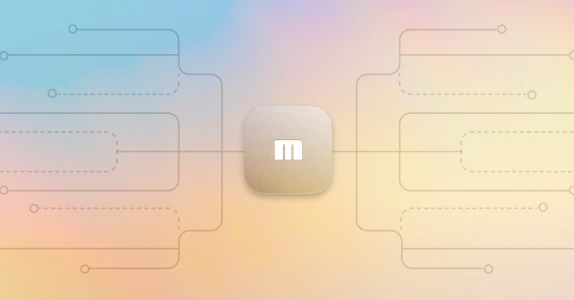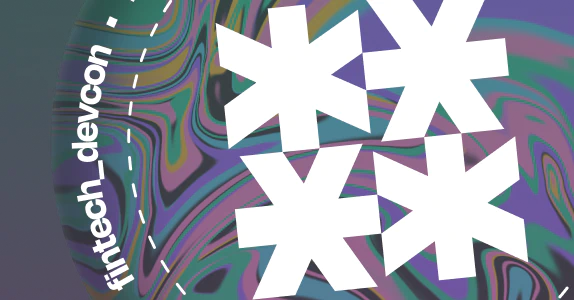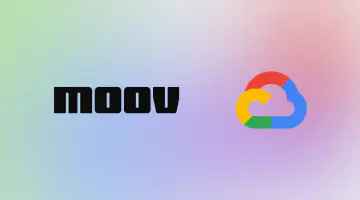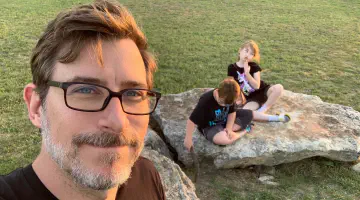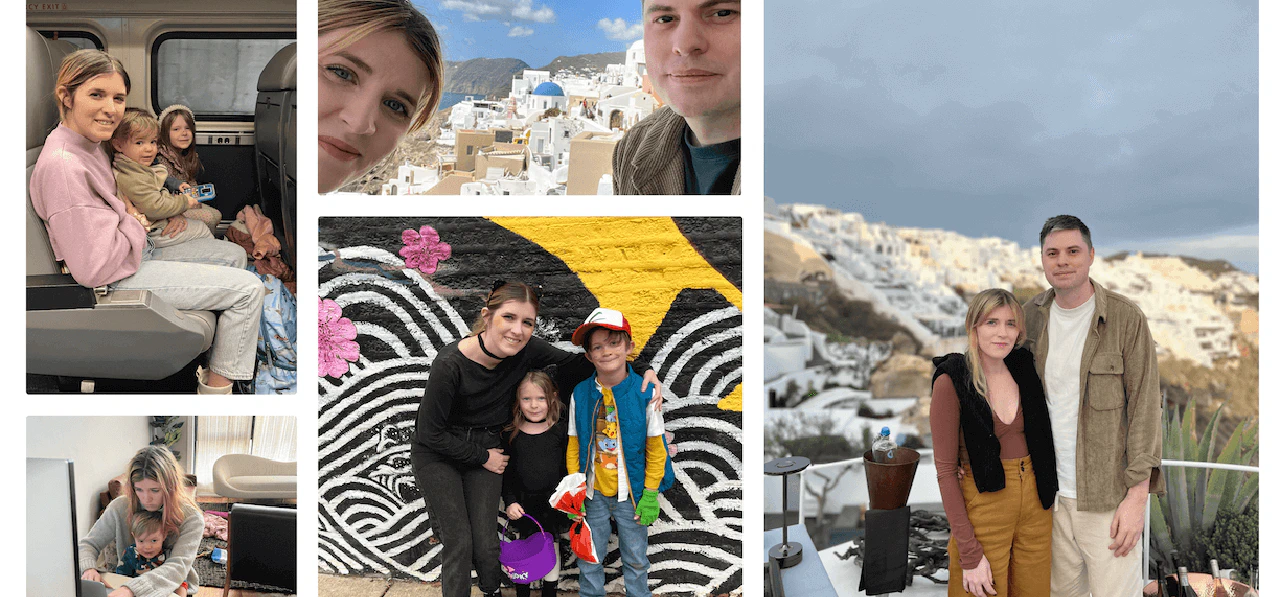
Why I joined Moov: Megan Spaulding
Here’s a core memory:
I’m about six years old, in the car with my dad, and he’s quizzing me on math. He has a master’s degree in petroleum engineering—very smart, very into math and science—so it was pretty normal for him to give me math lessons from time to time.
That day, he was just going over basic stuff like addition and subtraction. But, for whatever reason, he decided to throw an algebra problem at me—and I solved it without batting an eye.
He was like, “How did you just do that?” It was nothing I’d been taught, but it just came naturally to me. I was good at math and problem-solving, and I really enjoyed it. It would’ve made perfect sense for me to someday pursue a STEM-related career.
There was, however, the matter of the family business that I was supposed to someday run.
And how could I say no? My grandmother had worked her way up from office manager to president to owner of the printing company that became the family business. My dad had moved us from Oklahoma back to Missouri to help run the business and someday it would be my turn. So, when I started college, I was urged to focus on business classes.
But I had a lot of interests. In addition to math and science, I was drawn to the arts. I was a good vocalist with enough piano and guitar chops to back myself up, and I got a fair amount of attention for it. I was never sure, though, that music was exactly what I wanted to do. I saw the way other musicians loved music. It was everything to them in a way that it wasn’t to me.
So, I bounced around in college. After seven years and about 13 different majors, I eventually decided on a music business degree. I could still perform, but I could also manage my own career—and pick up a few other musician clients to help support myself. As graduation approached, I was on the verge of recording and releasing an EP. I’d even picked a recording engineer to work with.
And then I found out I was pregnant.
I didn’t want to work crazy-music-industry hours with a newborn, so I started a small home decor company with a friend. It went pretty well at first. In fact, from the outside, we looked successful, and we had some great niche celebrity clients in Nashville. We weren’t really making any money, though, and the partnership wasn’t the best. So I left.
Luckily, all the branding work I did for the company earned some attention. People began asking me for help with branding and marketing for their own ventures. The next thing I know, I’m running my own marketing agency with seven freelancers under me. While I enjoyed some of it, I hated design and content writing. (You know, the actual marketing.)
I found myself reminiscing about the time I had a short stint as a web developer where I got to write some lines of CSS. I loved it.
I loved it so much, in fact, that I kept absorbing more and more of that kind of work wherever I could. Before long, I changed the focus of both the agency and my career to development and engineering. Even though I was primarily self-taught, I felt like I was good at it—good enough to recognize and fix bad code.
As the company grew, I worked with a lot of engineers from different backgrounds and skill sets and I realized that my brain was wired differently. It was much harder for other people—even great engineers—to learn what came naturally to me.
After a few years, I decided to put my natural abilities to the test. I wanted to join an engineering team outside my own business. I wanted to collaborate and learn and see how I stacked up against the “real” pros.
I left my business behind and I landed a job at a bank as an engineer. It was a contractor position with the assumption that I’d be brought on as a regular, full-time employee after a while. But a hiring freeze landed me in eternal contractor limbo and my supervisor couldn’t offer much transparency about my future. I knew I needed a change. I also knew that I had value as one of the top performers among my peers at the bank. I had the chops to be a “real” engineer—self-taught or not.
I started looking for a new opportunity and I discovered Moov through a Built In article, which sent me down a rabbit hole of reading everything about the company that I could. The research paid off. When Moov’s Senior Software Engineer, Seth Livingston, interviewed me, I was able to share that we held the same philosophy about handling asynchronous code.
Long story short, I got the job. And I love it.
Going from self-taught to a large bank was uncomfortable in some ways. They had very specific, standardized ways of doing things that didn’t always result in the best solutions or code.
Share thisAt Moov, there’s a lot more autonomy. I’m the only front-end developer on my team, so I get to own my purview and prioritize my own work and make the kinds of decisions that a tech lead would make.
I also have a larger team of developers throughout Moov that I can go to with questions and ideas. It’s the kind of learning from amazing people and iron-sharpening-iron environment that I was looking for.
Some of this is because Moov is still pretty small. But autonomy and openness are so much a part of our culture that I feel like, even if we had a million front-end engineers, Moov would keep doing a great job of letting people say, “Okay, this is what I’m interested in and what I’m good at and I think this is important.”
Share thisWe give everyone a voice in their work, in their careers, and in how they grow. I love actually getting a say in how the platform is built and being encouraged to challenge myself.
Throughout my life, I’ve done some things I’m really proud of—owned my own businesses, taught myself how to code, and worked my way through a lot of advanced math textbooks (not for classes, but for fun!). I even sat my dad down to explain that the whole family business thing wasn’t going to happen (it’s fine, my cousin took over). But I’m not done yet. I have big ambitions, and Moov is a really fruitful place to learn and grow. In fact, I can’t think of a better environment to grow as an engineer.
When I think back to that first algebra question when I was a kid, my journey to Moov and my time here so far feels like a similar revelation. I’ve realized not only what I’m capable of doing, but what I was meant to do all along.
These are the reasons why I joined Moov, and why you should too.
